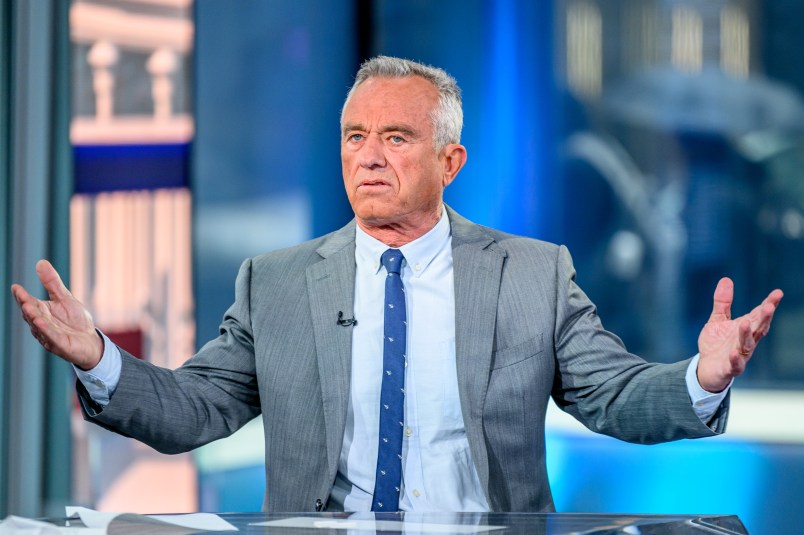Let me expand a bit on the RFK Jr. discussion from yesterday. It’s now clear that Kennedy will drop out tomorrow and that he will endorse Trump. I mean, clear as anything with two confirmed weirdos can be. But that’s what all the big publications are reporting, so we’ll assume that’s the case. I went through the numbers again and looked closely at what those most immersed in them think. If we look strictly at the numbers, the odds are likely that Trump gains some modest benefit. But it’s very modest. Elliott Morris, new top guy at 538, has become one of my go-tos on these things. He looked at their data which says that Kennedy dropping out of the race loses Harris two-tenths of a percentage point on her current lead. That’s not nothing in a race we all know will be very close. But it’s not far from nothing.
The truth is that calculations like this are over-determined. But it’s only statistics that makes anyone think this is going to be an issue at all — the fact that post-hot-swap, the three way polls started being slightly better for the Dems than the two ways when before the opposite had been the case. So to the extent we’re reasoning on that basis it’s worth looking at all the data systematically and seeing what they actually say. And that’s what they say: not much.
More broadly, again, this is all over-determined. Electoral politics never works in this clean, mathematical fashion, as though we were doing some kind of ranked-choice voting and Kennedy had been eliminated in a first round. Beyond that, we’re dealing with just the weirdest people — Bobby Jr. dead-enders. They follow a guy who harvests roadkill and when he decides he wants a different meal concocts fake crime scenes. If anything, I think there’s a decent chance that the optics of arch-weirdo Bobby Jr. joining hands with Trump and JD may actually be net damaging for Trump among the substantial population of undecided normal people.
Regardless, the best evidence we have, which tells us only a very limited amount, says it may very modestly help Trump. But in general, I don’t think it’s worth worrying about. The best approach I think is to double down on the case against weird.
Late Update: Nate Silver has an analysis of this question out this evening. It’s actually pretty close to what I described here. Unlike Morris, his numbers say that on a purely mathematical basis Trump gains four-tenths as opposed to Morris’s two-tenths of one percentage point. But he then goes on to describe a number of not-strictly-statistical factors that likely make it less than that. So slightly different but not dramatically so. Silver also seems to share my thinking that a nakedly transactional endorsement may be more discrediting than advantageous for both parties to the deal.






